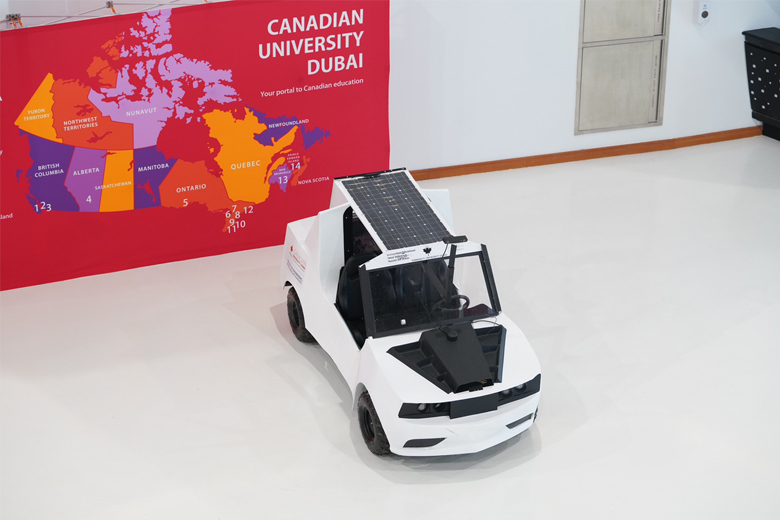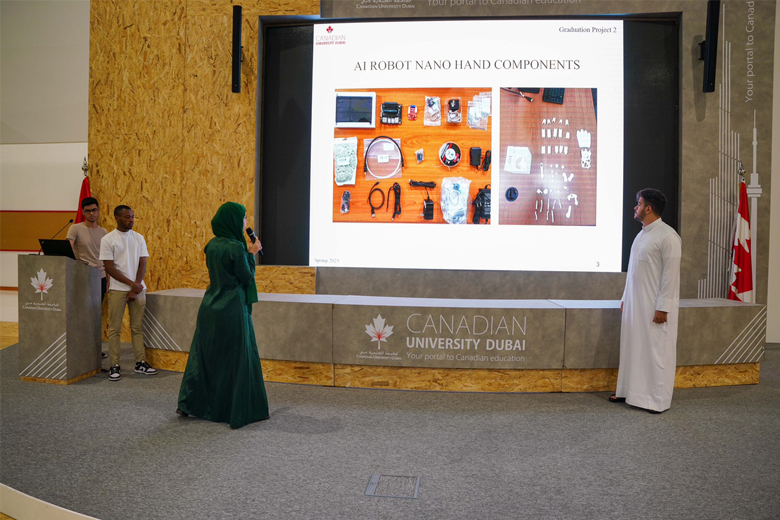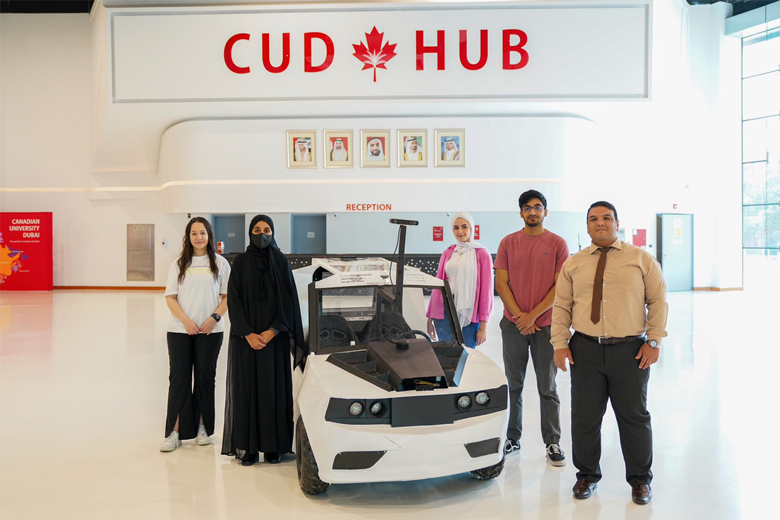A team of undergraduate engineering students from Canadian University Dubai (CUD) is driving the future of urban transportation with the creation of an autonomous car powered exclusively by solar energy. The innovative vehicle is the culmination of a year’s worth of teamwork across a multi-disciplinary group of 22 senior students from the university’s School of Engineering, Applied Science and Technology.
Developed as part of their graduation programme, five separate technical groups collaborated in the project, each responsible for a particular aspect of the manufacturing process. The first team engineered the steering and braking of the car, while a second team led the bodyshell design, material selection, and the suspension system development. The third team was tasked with the central processing design, managing the vehicle’s controls, as well as handling the inputs received from the camera and Light Detection and Ranging (LIDAR) system sensors, which serve as the car’s core intelligence.
Team of 22 undergraduate engineers drive future of sustainable urban transportation
A fourth team developed the vehicle’s smart navigation, configuring the LIDAR and camera system to ensure precise obstacle detection and avoidance, while the fifth team was the responsible for the supply of power to all the car’s onboard electronic devices, utilising the photovoltaic panel installed on the vehicle’s roof. This was achieved through a uniquely designed power conditioner that charges the traction battery, delivering a 60-volt power supply to the car.

Speaking about the ambitious collaborative effort, Feras Ahmed Usmani, a Bachelor of Science in Electrical Engineering, Mechatronics student said, “The greatest challenge was the merging of all the systems into one cohesive car that met our project requirements. For example, ensuring the integration of the steering system and enabling the Central Processing Unit to receive commands from the control centres. The guidance from our Professors, effective student teamwork, and strong engineering skills were fundamental to the success of all the car’s developments.”
Fellow Mechatronics major, Malak Osama, added, “Working within such a diverse team has clearly demonstrated to me how we are interdependent upon one another to optimise the functionality of a product. My programming and engineering skills have become enhanced over the duration of the project through research, data configuration, working on different software and redefining various systems. During my current internship, I find myself applying what I learned during this project at CUD.”
‘’The guidance from our Professors, effective student teamwork, and strong engineering skills were fundamental to the success of all the car’s developments”

Among the faculty supervising the project was Dr. Salih Rashid Majeed, Assistant Professor in CUD’s School of Engineering, Applied Science and Technology, who said: “The students have become equipped with valuable interpersonal skills and technical expertise. The practical application of their theoretical knowledge to this real-world project is remarkable and life-changing for their futures. The project facilitated a deeper understanding of the true essence of engineering and the significance of teamwork among the students.”
As the UAE Cabinet recently announced the first licence of its kind for self-driving vehicles, Feras is anticipating the future journey of CUD’s first-ever car. He concluded, “While the car is currently on display at CUD and undergoing some final adjustments we are also exploring external collaborations to utilise the vehicle as a means of transportation between CUD’s two City Walk buildings.”












